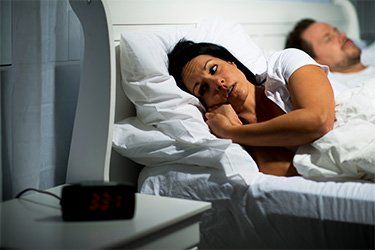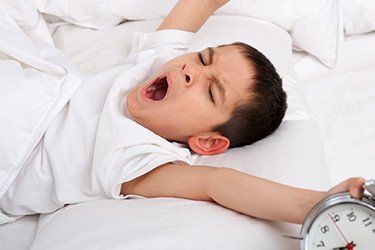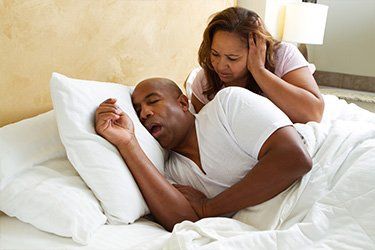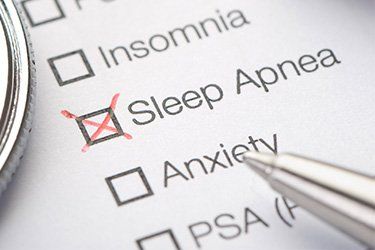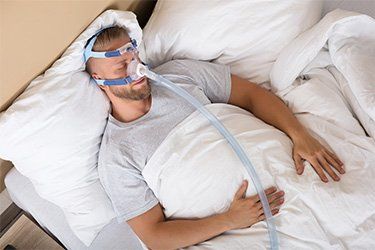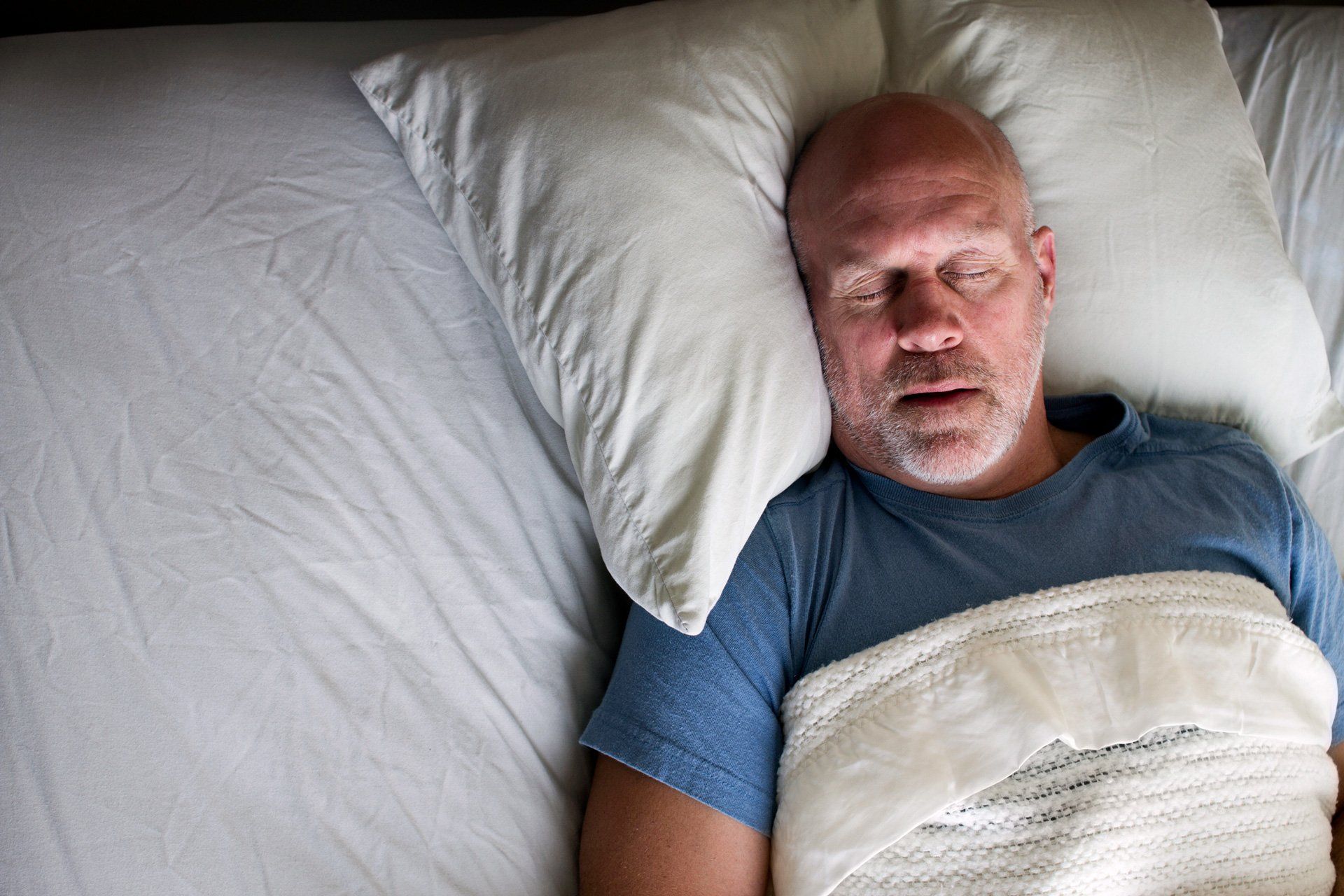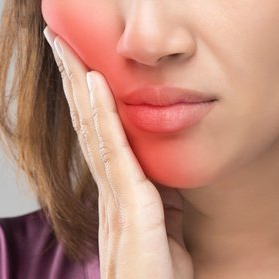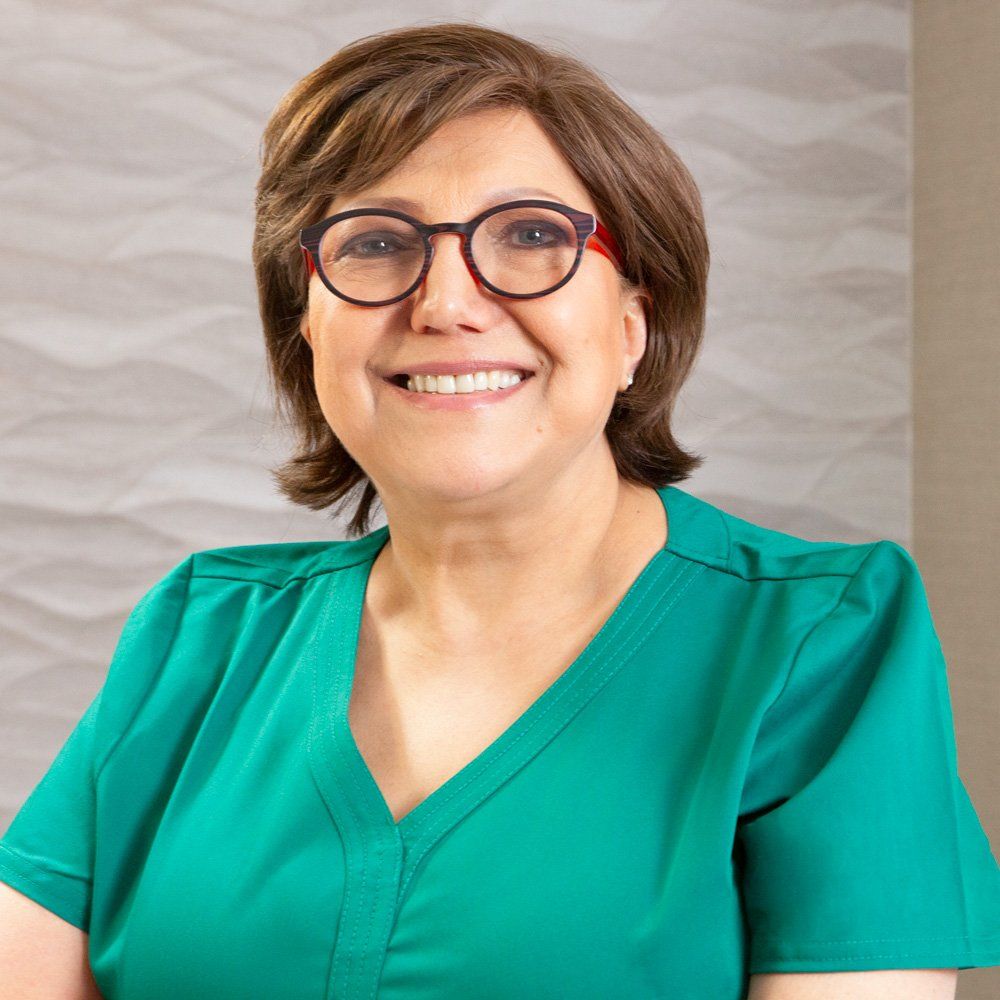What Is Sleep Apnea?
Sleep apnea is a potentially dangerous sleep disorder in which a person’s breathing is interrupted during sleep. This can occur dozens of times a night, fracturing a person’s restful sleep and depriving them of oxygen.
Effects of this disorder range from daytime fatigue and sleepiness all the way to potentially fatal conditions such as heart failure, stroke or heart attack.
Some people are predisposed to sleep apnea because of a narrowed airway or problems with the structure of the mouth or jaw.
Sleep apnea and a predisposition to sleep apnea are both resolved by treatment with a groundbreaking device: the Vivos Biomimetic Oral Appliance from Breath of Life Dental.
Learn More About the Three Types of Sleep Apnea & How to Prevent it
How Can We Help You?
What Causes Sleep Apnea?
The causes of sleep apnea vary depending on which of the three types of sleep apnea you have. By definition,
sleep apnea
simply means that you temporarily stop breathing when you are asleep. So the only real differences between the three types of sleep apnea are the underlying causes.
Causes of Obstructive Sleep Apnea (OSA)
Obstructive sleep apnea is caused when something, usually your tongue, falls back in your throat or relaxes too much and blocks your airway. When this happens, you start to choke, and so your brain tells your body to wake up to restart your breathing. This can happen dozens of times per hour and prevent you from getting a good night’s sleep.
The key factor in obstructive sleep apnea is that something has to obstruct the free flow of air into your body. Most adults’ airways are blocked due to:
- Weak muscles in the throat
- A relaxed tongue falling back into your airway
- Enlarged tonsils or adenoids
- Underdeveloped mandible (lower jaw)
- Smaller airway due to the size and position of your hard palate
Causes of Central Sleep Apnea (CSA)
The second type of sleep apnea is called central sleep apnea (CSA). Usually, your brain sends signals to your respiratory muscles to keep you breathing automatically. But sometimes those signals are ignored or don’t get sent in the first place. When that happens, you stop breathing. This can occur all throughout the night and make you wake up repeatedly to breathe.
There are two different categories of central sleep apnea (CSA) depending on whether your breathing is too slow (hypoventilation) or too fast (hyperventilation).
Hypoventilation type CSA, where your breathing is abnormally slow, can be caused by:
- Medical conditions that affect the brainstem (brain infection, stroke, tumor, trauma, etc.)
- Narcotic medicines, such as opioids, which lower your brain’s ability to send the signals that control your breathing
- Neuromuscular diseases, such as amyotrophic lateral sclerosis (ALS) or multiple sclerosis (MS). These conditions cause muscle weakness, including your respiratory muscles.
Hyperventilation type CSA, where your breathing is too fast, can be caused by:
- Cheyne-Stokes breathing, which is a distinct pattern of breathing commonly found in people with heart conditions (like heart failure and atrial fibrillation) that leads to CSA.
- Altitude-induced periodic breathing, which can happen after you ascend to an altitude above 8,000 feet where the air has a lower concentration of oxygen (such as on a hike). This causes you to breathe harder and can lead to CSA when you sleep.
Causes of Complex Sleep Apnea
In a small percentage of cases, some adults who are receiving treatment for obstructive sleep apnea can develop complex sleep apnea (which is also known as treatment-emergent central sleep apnea).
Complex sleep apnea
is essentially the same as central sleep apnea in that the signals from your brain are either ignored or not sent to your respiratory system. The difference is that complex sleep apnea always follows treatment for obstructive sleep apnea, usually CPAP treatment.
At this time, the exact causes of complex sleep apnea are not known.
Medical Risks of Untreated Sleep Apnea
Many people think the biggest side effect of sleep apnea is feeling tired during the day, but this condition can lead to other serious medical issues. It’s important to get treatment for your sleep apnea right away to reduce your risk of conditions such as:
- High blood pressure
- Liver problems
- Heart attack
- Increased blood sugar
- Type 2 diabetes
- Metabolic syndrome
- Heart disease
- Stroke
- Increased cholesterol levels
Dr. Maryam Seifi provides alternative sleep apnea treatment for adults. Her goal is to help you get high quality sleep because a rested body is the foundation of a healthy life. Unlike traditional solutions for sleep apnea, such as continuous positive airway pressure (CPAP) or surgery, Breath of Life Dental (BOLD) uses proven, non-invasive treatments that address the underlying causes of your sleep disordered breathing.
What Increases Your Risk of Developing Sleep Apnea?
There are certain factors that increase your risk of developing sleep apnea as an adult. These factors include:
What Are the Symptoms of Sleep Apnea?
Are you worried that you might have sleep apnea? The first step to getting the treatment you need to maintain your good health is to learn what the symptoms of sleep apnea are. The most common signs and symptoms of sleep apnea include:
- Waking up gasping for air or choking
- Loud snoring
- Having headaches in the morning
- Difficulty concentrating during the day
- Excessive daytime sleepiness or exhaustion
- Dry mouth or sore throat in the morning
- Unexplained changes in mood, like depression or anxiety
- Sudden short temper or irritability
- Unusually low sex drive
- Difficulty getting to sleep and staying asleep
- TMJ disorders
- Higher blood pressure
- Increase in cholesterol levels
- Increase in blood sugar
If you are experiencing any of these symptoms, you should schedule an appointment with Dr. Maryam Seifi at Breath of Life Dental (BOLD). After a thorough examination, she can create your custom treatment plan to handle your sleep apnea.
How Is Sleep Apnea Officially Diagnosed?
Your doctor or dentist can evaluate your symptoms to determine if you likely have sleep apnea. It is especially helpful if you share a bed with a spouse who can offer information about your sleep habits, because you may exhibit symptoms at night that you aren’t aware of or don’t remember.
If your doctor or dentist suspects sleep apnea, they may refer you to see a sleep specialist at a sleep disorder center for more thorough evaluation. This may require you to stay overnight at the sleep center so the specialists can monitor your breathing and other body functions while you’re asleep. These specialists will be able to diagnose exactly which type of sleep apnea you have so that you can get started on the correct treatment for your health.
What Do I Do When I Am Diagnosed With Sleep Apnea?
If you are diagnosed with sleep apnea, you should schedule your appointment with Dr. Maryam Seifi at Breath of Life Dental (BOLD). Dr. Seifi has been using the revolutionary Vivos system of oral appliance therapy to help people with sleep apnea in Maryland. Using this system, you can achieve better sleep and improve your overall health and wellbeing.
Dr. Seifi has seen fantastic results in her patients with the Vivos system. And the best part is that once you finish your treatment, you will no longer have to use the Vivos oral appliance to get a good night’s sleep! This is a permanent, long-term solution to adult sleep apnea that will enable you to get the deep, restful sleep you need for a long and healthy life.
Are you ready to see the amazing results for yourself? Call Breath of Life Dental (BOLD) at
(301) 770-1070 to schedule your consultation with Dr. Seifi today.

